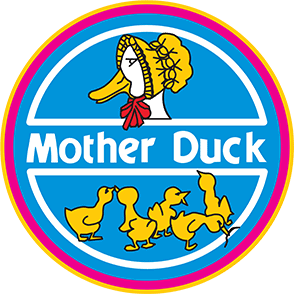
Settling Your Child Into Care
Some handy tips to make the transition as smooth as possible:
We appreciate that the initial period of enrolling your child in care and leaving them for the first time can be quite daunting for families. As parents, we are wired to be particularly connected to our children and so if they are distressed or upset, naturally as parents it can trigger our distress. We wish to share honestly with families that although some children will find transitioning to care quite smooth, others will find it more difficult and the process may feel more overwhelming for the child (and therefore the family). Although it isn’t always possible to avoid feelings of sadness as a child says farewell to their parents for the first time, there are certainly some key strategies that will reduce anxiety and support a child to feel more confident.

Some suggestions to support you and your child with the transition to care:
Prior to starting care:
- Arrange for some play dates where your child can come and visit with you prior to starting.
- Allow your child to see you engage in friendly conversation with your child’s educator (children feel a stronger sense of security when they see that their primary caregiver feels safe and secure within the care context).
- Ask as many questions as you need to of the Nominated Supervisor and your child’s educators. No question is ever “silly” We want you to feel confident, safe and secure in leaving your child with us and being able to make informed decisions about your child’s care is essential to how you feel as a parent/caregiver.
- Provide as much information as you can about your child to your child’s educators prior to starting. You know your child best and the more information our educators have, the better ability they will have in understanding and supporting your child.
At home:
- Talk with your child (no matter how young!) prior to starting and throughout their transition about “Kindy” or “Mother Duck”. Talk in a gentle, positive way about your child’s educators, about their peers and about the environment.
- Show your child pictures of their educators and the care environment etc (if you would like additional pictures provided, please talk with the Nominated Supervisor at your Service).
- Listen to your child’s concerns and talk through their fears (if they express any). Validate their feelings – this is absolutely critical. Often as adults when our children are upset or sad or scared, we can be quick to say “it’s okay”, “you’ll be fine” etc. The problem with these comments is that when a child is sad or scared and they share this (either verbally or through their behaviour), these comments can easily be perceived as “the adult in my world is not hearing me”. This can either cause a child more outward distress, or alternatively, they will push down their worries and continue to feel sad and scared on the inside.
If your child is sad/scared, here are some ideas for how you could respond:
- “I can see you’re worried about starting Kindy. It’s normal to feel worried when we are starting something new. I trust the teachers and know they will take great care of you.”
- “I’m wondering if you might be feeling sad about saying goodbye to Daddy tomorrow. I understand. I want you to know that you are very safe and we love you.”
Validation provides the brain with a sense of safety – “this person gets how I feel”. This immediately brings a sense of calm and assurance and allows the child to process their feelings and any logical reassurance you provide.
- Develop a clear routine for the morning drop off that is predictable and where your child can feel involved in the process. Try to include some ways in which they can have some “choice” as to how the drop off process goes. (For example, “When I drop you off, I can either read a book with you, or push you on the swing. What would you like to do?” Having choice reduces stress as a child feels they have a say over what happens to them.
Upon Arrival:
- Try to remain as calm as possible!
- If your child is upset, encourage them to bring in a special comforter (eg. Teddy, blanket, or a special pillow). (Once again, refer to the points above about VALIDATION!).
- Exchange any information on arrival with your child’s educator.
- Spend a short period of time playing with your child, reading a book etc. (Refer to the point above about giving your child choice in what you do).
- Give verbal warning to your child that you are going to be leaving (never sneak away!). If they grow upset, please seek the support of an educator. If your child is settled as you leave, please say “goodbye” to your child and their educator so your child’s educator can provide any additional support to your child at this time if required.
And remember, call during the day if you wish to check in on your child! We want you to feel safe with us and our educators are happy to communicate with you to ensure your concerns and questions are addressed.
Please be assured that our skilled, passionate and caring educators are knowledgeable and experienced in supporting you and your child during this time. We encourage you to talk further to someone within your Centre Management Team should you need additional support as we all work together to make sure your child experiences a true sense of belonging and safety during their time with us.
The Mother Duck Management Team

